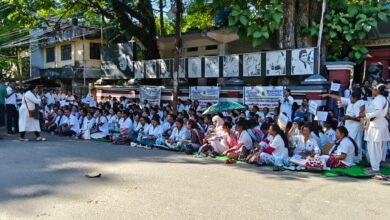Zubeen Garg: A Voice that will Live Forever

Today marks a bittersweet milestone in the hearts of millions across Assam and beyond. Assam today celebrates the birth anniversary of Zubeen Garg with all heart and soul, a day filled with both sorrow and sadness, yet held together by the strength of his everlasting memories and the legacy he left behind.
Born on November 18, 1972, Zubeen Garg sang more than 40,000 songs in an estimated 40 languages and dialects, a feat that placed him among the most prolific artists in Indian music history. From the haunting notes of “Ya Ali” that captured hearts across the nation to the soulful rhythms of Assamese folk songs that defined a generation, his voice became the soundtrack of life for countless people.
Zubeen Garg, the legendary and immortal artist, would have turned 53 today. This year’s commemoration carries profound weight, as it marks the first such occasion since his tragic passing on September 19, 2025, in Singapore. His music, his spirit, and the cultural revolution he inspired will forever live on in the hearts of his people. Though his presence is no longer with us, his influence remains timeless.
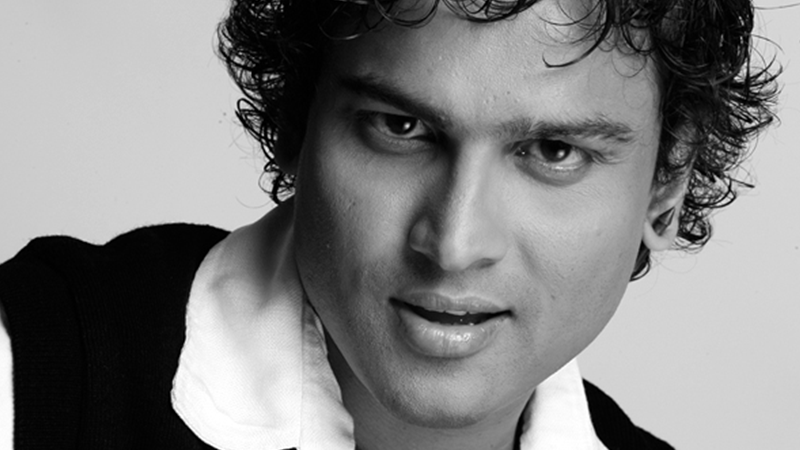
Zubeen Garg began his professional music career with his debut Assamese album ‘Anamika’, which was released in November 1992, launching a journey that would span over three decades. He went on to compose music for 38 Assamese films, four Bengali productions, and three Hindi films. As an actor, he appeared in 27 Assamese films, and even directed three, showcasing his versatility as a complete artist.
Yet those who knew Zubeen Da closely will tell you that his greatest legacy was not measured in album sales or awards, but in the lives he touched through his quiet acts of kindness. Film critic Utpal Borpujari recalled Garg’s benevolence saying “There are countless stories of how he helped those who needed medical treatment and children at orphanages.”
His charitable efforts were often institutionalised through the Kalaguru Artiste Foundation, which he used to mobilise large-scale relief operations, particularly during Assam’s devastating annual floods. Unlike the celebrities icon who maintains a distance, Zubeen Da was renowned for his straightforward interactions with street vendors, rickshaw pullers, and homeless individuals.
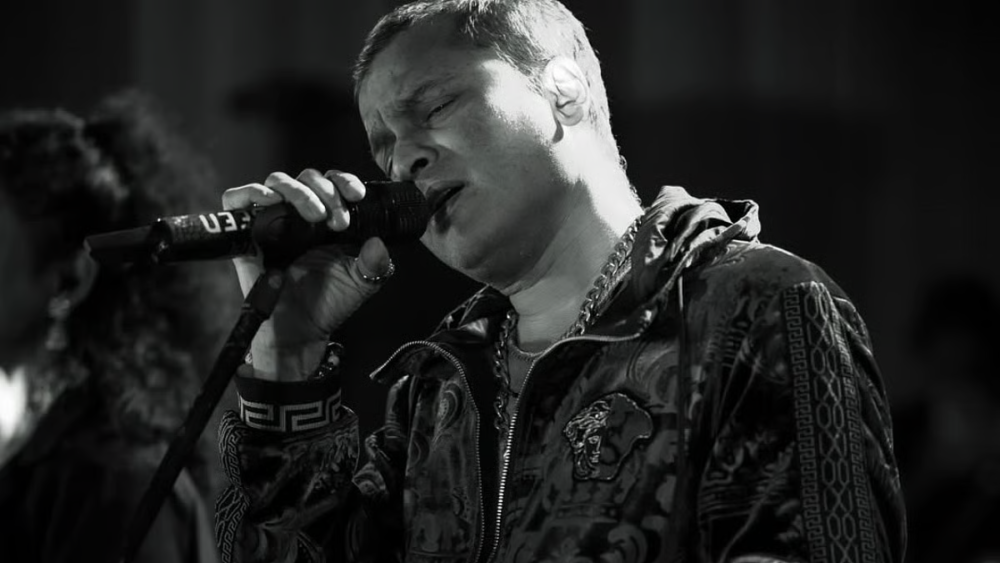
He actively channelled his considerable commercial success, which he often viewed as a fleeting commodity, not toward personal accumulation but directly toward the suffering and the less fortunate. His commitment to social justice and his identification as a socialist made him not just an entertainer, but a voice for the voiceless.
Today, across Assam, fans gathered at memorials, played his songs, and shared memories of concerts where his voice made them dance, cry, and feel truly alive. From urban centres to remote villages, Zubeen Garg fan clubs organized tribute events, ensuring that his 53rd birthday would not pass unmarked.
Zubeen Da’s wife, Garima Saikia Garg, also shared an emotional tribute: “From this life to the next, we will continue writing our story, Goldie…”
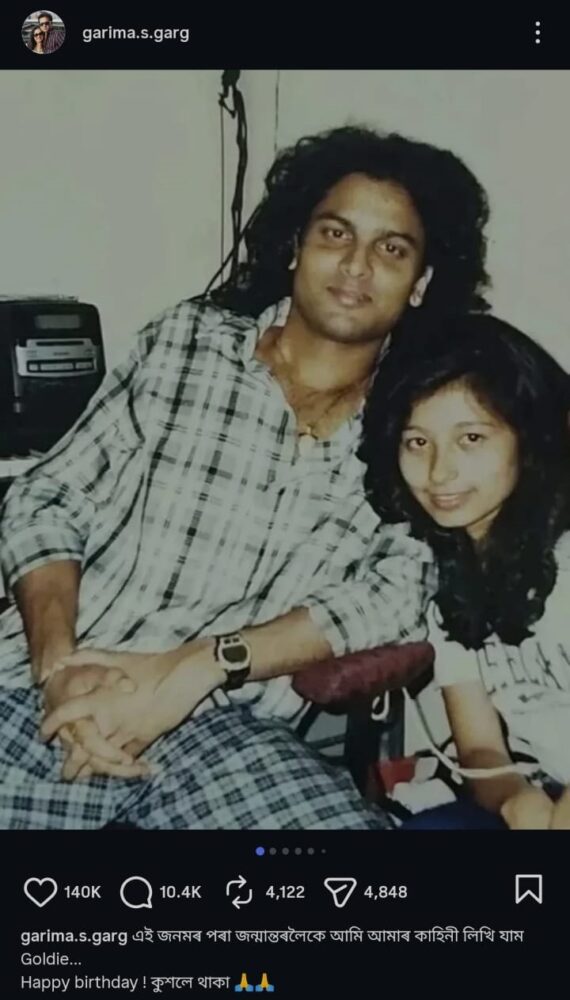
For millions, Zubeen Garg was not merely a singer; he was a phenomenon. He was the artist who sang in languages many had never heard of, who championed causes others feared to touch, and who never forgot where he came from even as his fame grew.
To millions who loved him, he was never just “Zubeen Garg”, he was “Zubeen Da.” It was a testament to the relationship he had with his people. Unlike distant celebrities who exist on pedestals, Zubeen Da was approachable, relatable, a brother who understood the joys and sorrows of everyday life. This simple term of endearment captured something profound, he belonged to the people, and they to him.
Assam has experienced an irreplaceable loss. Yet paradoxically, the state finds itself enriched, for the singer’s legacy extends far beyond the boundaries of his mortal life. His extensive catalogue will continue to reveal new dimensions to future generations of listeners, each discovering different facets of his artistry.
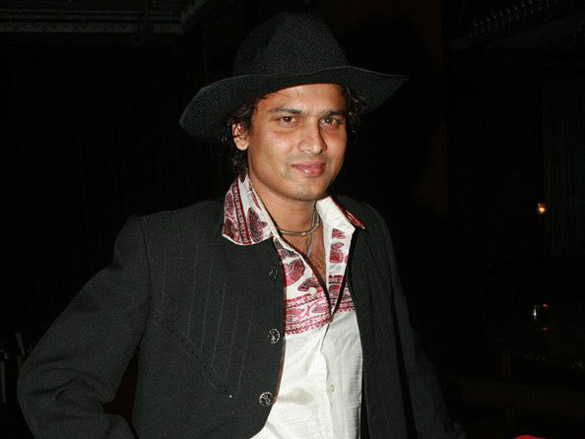
His body of work, spanning thousands of songs, multiple film scores, and diverse linguistic traditions, will likely become the subject of scholarly examination across multiple disciplines: musicology, cultural studies, sociology, psychology, and political science. Annual commemorations will celebrate his contributions, and posthumous recognition may follow.
But here’s the truth that his closest admirers know: Zubeen Da wouldn’t have cared about the accolades. He sang because he had to, helped because he could, and loved because that’s who he was. The awards and the analysis will come, but his real legacy lives in the hearts of ordinary people whose lives he touched with a song, a kind word, or a helping hand. That was Zubeen Da, the people’s brother, forever.
As the sun sets over the Brahmaputra today, his songs will play in homes across the Northeast and beyond. Because Zubeen Garg may have left this world too soon, but his voice, his art, and his compassion will echo through generations to come.









